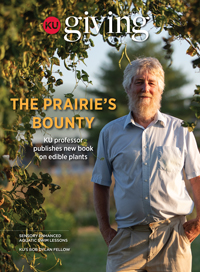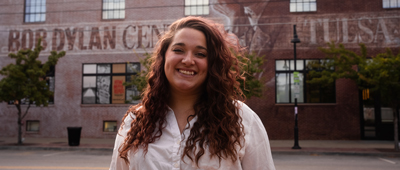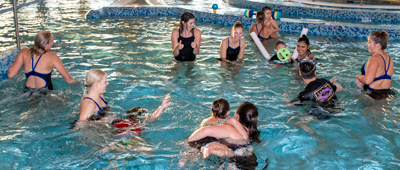Neighborly Ties Unlock Millions in Research Funding
Haines Eason
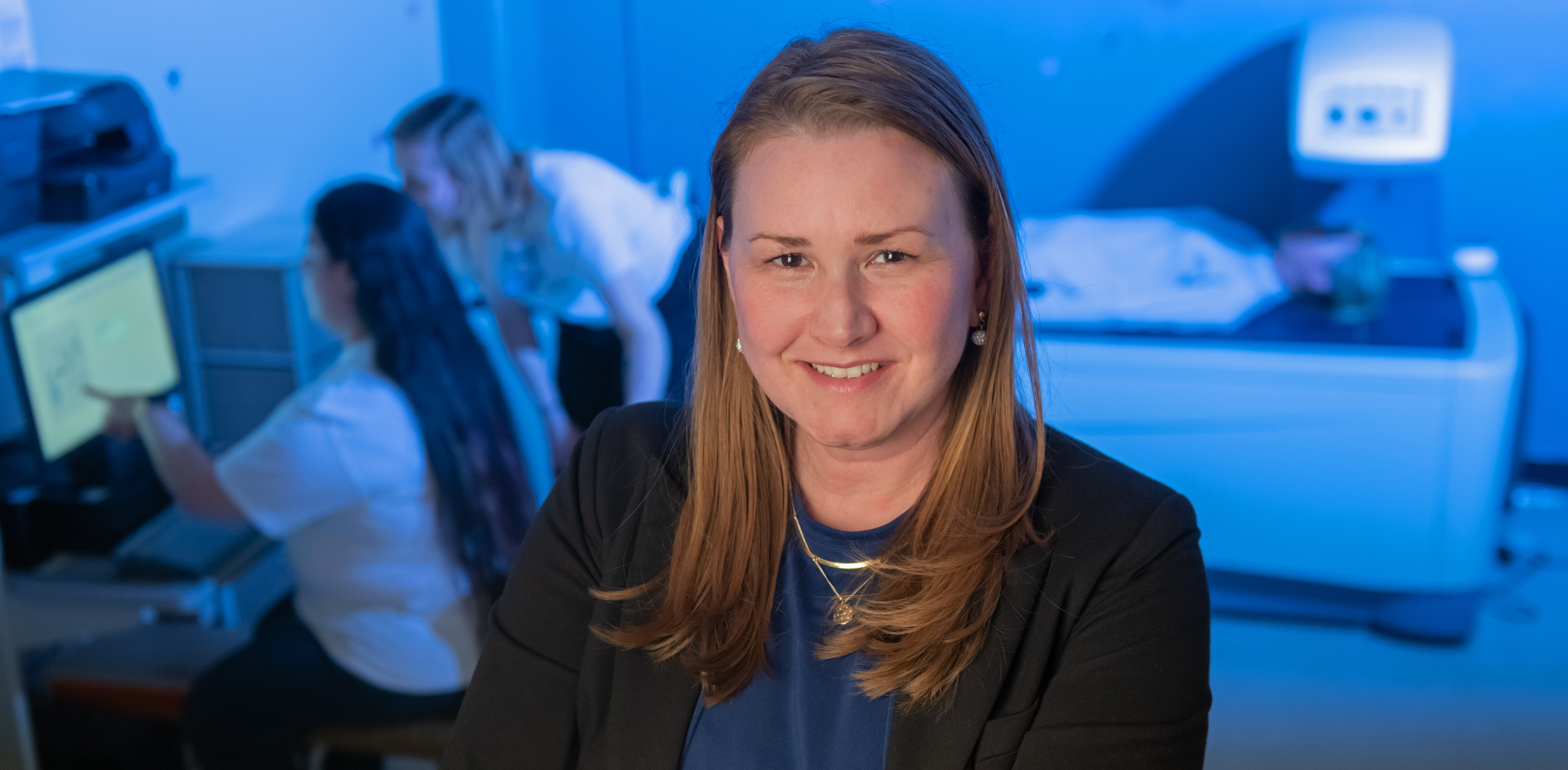
REWARDING DEVICE: The addition of the DXA machine to the lab of KU Medical Center associate professor Holly Hull, Ph.D., allows the research team to do body composition scans throughout a person’s life and has resulted in external grant funding.
As neighbors, Charles and Carolyn Kellogg have known Holly Hull and her family for at least 12 years. They’ve watched Hull’s daughter grow up healthy and strong, becoming, among many things, a softball pitcher. And, they’ve naturally learned about Hull’s research as an associate professor of dietetics and nutrition at the University of Kansas Medical Center. Hull and her team study how a mother’s environment and diet can affect her and her baby’s long-term health.
In their lives beyond the neighborhood, the Kelloggs are directors with the Goppert Foundation (Charles is also an officer), an organization that funds capacity building at medical facilities, civic organizations, educational institutions and elsewhere.
It just so happens that Hull’s work hinges on machinery that can scan a person’s body to report on its composition — the percentage that is bone, muscle, fat, etc. But, her two legacy machines were only so useful. One could only scan a study participant from birth to five months, and the other only from age five onward.
Hull had come to the conclusion that a dual-energy x-ray absorptiometry — or DXA (pronounced dex-ah) — machine could give her uninterrupted access to cohorts of pregnant mothers and their babies from the prenatal stage well into life. “The DXA is critical to all the work I do,” she said. “It really can replace my other machines and provides so much more information.”
In 2017, the Kelloggs encouraged Hull to apply for a $55,000 Goppert Foundation grant to cover the purchase of a machine. She was approved, and, to some extent, the floodgates opened. “The machine has done very well for her and KU,” Charles Kellogg said.
Indeed. The grant and machine helped Hull secure roughly $2.5 million in National Institutes of Health (NIH) funding, and additional grants are in the works. In the world of research, this is top-shelf grant money. Now, Hull and her team of doctoral candidates and staff can study candidates from conception through several years of life. The goal? Understanding how nutrition affects both mother and child.
“My purpose through my research?” Hull asks, rhetorically. “To better peoples’ lives.”
She’s humble in her straightforwardness. In essence, Hull and team scrutinize dietary adjustments that might unlock optimal cognition and body health for mother and child.
“Holly is a top-level thinker,” Carolyn Kellogg said. “Very caring, too. With her goals, her work, everything is well thought out.”
From $55,000 to millions, all to better generations yet to be born. And, it all happened thanks to a little old-fashioned neighborliness.
